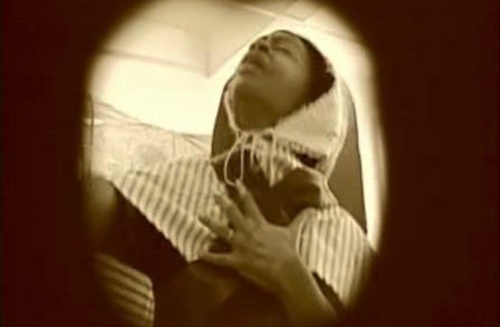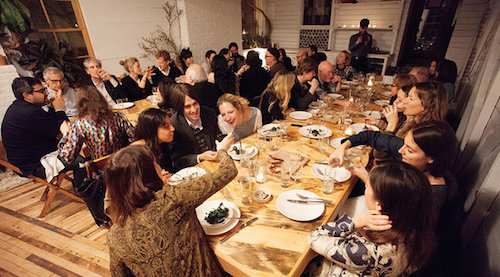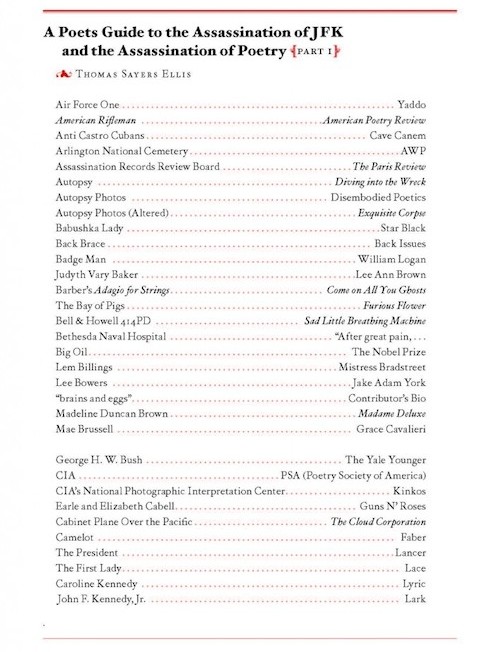Flibbertigibbet in a White Room / Competencies
BY Simone White

I remember things I never forgot. To spend an afternoon returning to the site of some wrong committed only in my imagination against an unnamed person, a vaporous friend, is a bore and no kind of penance. What have I neglected?—has it to do with money? Probably, I’ve insulted someone. Even the cat, thrashing in my arms, cannot abide being touched improperly in terms of the calculus of will and affection.
Probably, it is impossible to avoid insult in the atmosphere of feint, desperation and cluelessness that pervades this life. (Supposed to be contemplative, supposed to be romantic in the way it hearkens back, historically, materially, to an eradicated bohemia. Impossible, anyway to forget what any previous bohemia, would have been, for me, black as I am. Thank god for the enormity of my lateness.) To try is to manufacture, it is to glue, it is to piece together against every probability an evasive “we” that moves in my arms like a living animal. The more I think, the more I am estranged. What is a work called when it punishes intimacy with paranoia?
There has never been a moment when the world I lived in did not claim to be mostly-white, all-white, white-shoe, majority-white, elite-white and meanwhile the family I was in, the neighborhood I was in, the love I was in, the music I was in-to, the clothes, the mood, the writing were most(ly)-black. If you start from that perspective, looking for the difference between claims about the whiteness of the world and its material blackness, you’ll find it---the difference. I mean to be present to that difference without blowing it up into the whole point of the investigation, the mechanisms of which have got, on occasion, to be cleaned.
I mean, part of the investigation has to be losing track of the way of doing the work. In investigations having to do with blackness—which I’m saying is all investigations—I try never to grasp or grip with too much paranoid ferocity on blackness itself. That’s a worldview and a practice: don’t be gripping onto it, or you lose sight of why you are holding it in your view, or trying to hold it and get a look at it, why it is precious, why the need to describe it properly, in all its (still) understudied fucking massive significance. This is why there will never be a commercial, institutional, disciplinary word that describes devotional investigation of blackness. All I can do is say back to you some names and words that have led to the present proximal or provisional and insufficient understanding of how black people are in this world.
Nathaniel Mackey resorts to the term “namesake” for talking about a kind of meta-quotation that verges on the professional practice of ordinary quotation but is also a gestational gesture: I claim you and take you inside me and, so, you will come out of me. I read you.
By the time I roused my self from the comfort of Bedford-Stuyvesant to a poetry reading in Williamsburg in the dead of winter, over the ice, to hear Anselm Berrigan, Dana Ward and Lauren Shufran, I had been thinking for a long time about what people mean when they say that US poetry that is not interested in reproducing the familiar (call it what you want: experimental, innovative) is a white practice, a white thing, dominated by white poets and white institutions. I’d been thinking about this as a curator at The Poetry Project, as a person who has published collections only with independent small presses with few informal or institutional connections to people of color “communities” (I use this word reluctantly not because I question the existence of these communities, but because I don’t want to be understood to be saying I believe in their existence as natural; as extra-institutional, extra-economic, as ideal, in other words). I’d been thinking about it as a person who lives in, and not by accident, a thoroughly diverse intimate world that could never be described as “white.” And I’d been thinking about it as a woman poet who writes poems that could never belong to any tradition but a black tradition.
I didn’t know it that night, but I was just the tiniest bit pregnant. So, although I was drinking in the harmless way that I drink (maybe I had 2 beers), I felt inexplicably drunk and frustrated by the impossible whiteness of the room I found myself in. Let me say again: I am used to being the only black person in the room. It happens all the time and has happened all the time since I was a little, 10 year old pigtailed thing stuck in a tiny private girls school in Chestnut Hill. But the fact is, being used to being the only black person in the room isn’t the same thing as thinking that this is a tolerable or reasonable condition. Even when I was 10, I knew (or was told repeatedly so I better know) that this was something to be tolerated and managed, like a nasty variety of mold. I do not enjoy it any more than I enjoy any other condition that is a scourge and ought to be eradicated.

When I say that I became inexplicably frustrated because I have been thinking for thirty years and now, in and out of elite educational situations, the practices of law, poetry and teaching, about how black people in the United States get isolated socially, economically and aesthetically—and how it feels to be a problem—what I’m saying is that my “knowledge” about the fact and the wrongness of this isolation is more solid and deeper than anything I could demonstrate, yet I cannot explain how I continue to be startled, taken up short, and injured by instances of the facts. More and more, I’m sure that I have to refuse intellectual “community” whose joy is in some way predicated on enjoyment of what is, at best, obliviousness to these harms, or worse, actual celebration of the specialness of all-white clubs. It is total bullshit to enjoy being in a social or creative community that is segregated the way poetry is segregated.
I’m saying that in that room, that night, I hit something like a wall or bottom or saw something that I never want to see again, which might have been my own complicity or token-ness or it might just be that I was tired and pregnant and, really, too old to be in an overcrowded white room in Williamsburg full of white people ten years younger than me, and I wanted to go home.
***

One reason to admire the wildness of Thomas Sayers Ellis’s imagination with respect to the possible coming to pass of a map that charts Poetry crimes and misdemeanors on both historical and trivial scales, is that that map is in some ways an analogue of a smaller map (being drawn in my work) that charts the relation between black Philadelphia, its Germantown, Osage, Baltimore Avenues, to the falling down house of John Coltrane, seeing that every day as a child, and being unable to square it, in any way, with the way grown people whispered his name (the way Baraka falls into whispers in Black Music . . .). I cannot draw you a map, but everything that has occurred or might have occurred in any linguistic location on such a map belongs to me.
Ellis’ apparently two-dimensional, paranoid “A Poets’ Guide to the Assassination of JFK and the Assassination of Poetry” is, for me, a model of melancholy experimentation in and with the assumptions of Poetry competency; the demand that professional poets know their way around players, works, places and forms, all of which contribute to an atmosphere of smugness that impedes approaching the truth of its insanely segregated reality. The wickedness of Ellis’ humor is grounded, for me, in the big joke of presumed whiteness, which he is past saying because he’s been doing this for a long time. I think about the ubiquitous “Kill List” and the unending commentary that surrounded its publication—as if it had provoked some genuine emergency of craft, when, for me, it just raised a lot of ethical questions that I consider to be asked and answered while leaving untouched every problem that concerns me about the operation and future of poetry as community—and I wonder, Where was the commentary on Ellis’ list, aside from its having become untraceable? Its absence speaks to a broad, pressing question of how Poetry’s segregation is related to what an emerging poet needs to know and the question of how to acquire that knowledge outside her immediate surroundings. We are all pressed by limited time and resources: So how and where do you spend your time? How do you come to know the lay of the land? Who are you with and how sound? How do you look (over your shoulder)?
The work is called poetry. Paranoia is a measure of its degree.
Simone White was born Middletown, Connecticut, and raised in Philadelphia. She earned her BA from Wesleyan...
Read Full Biography

